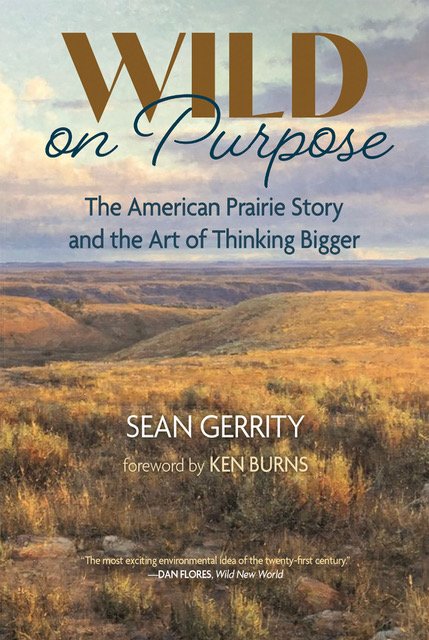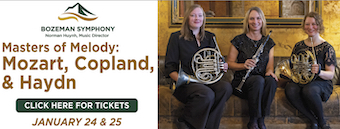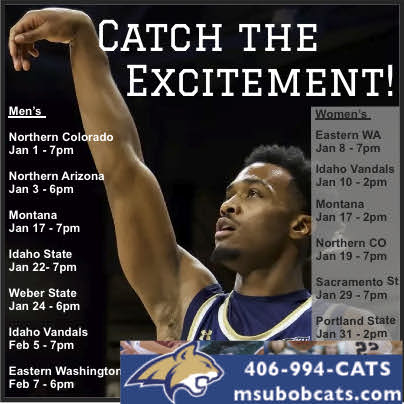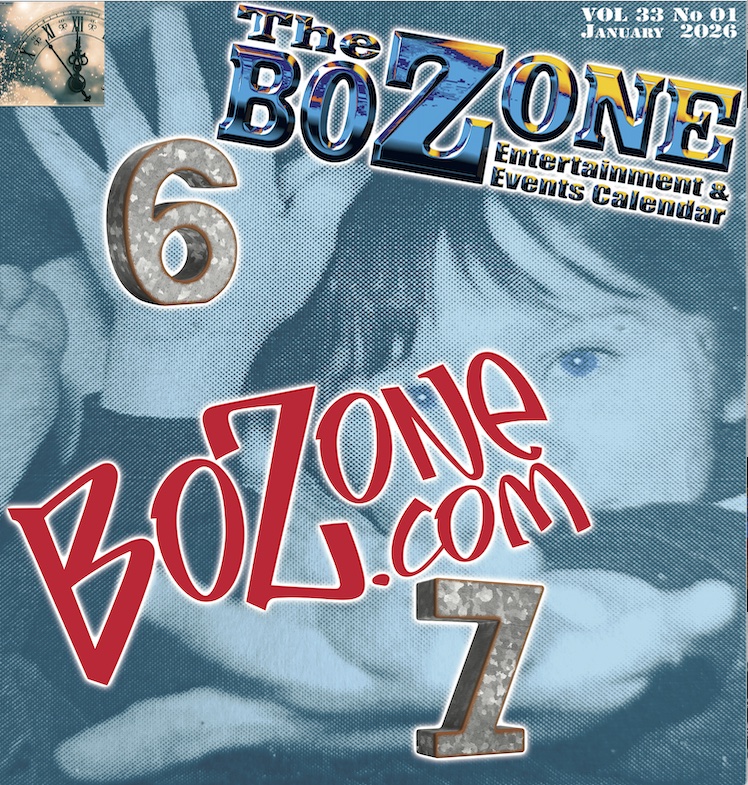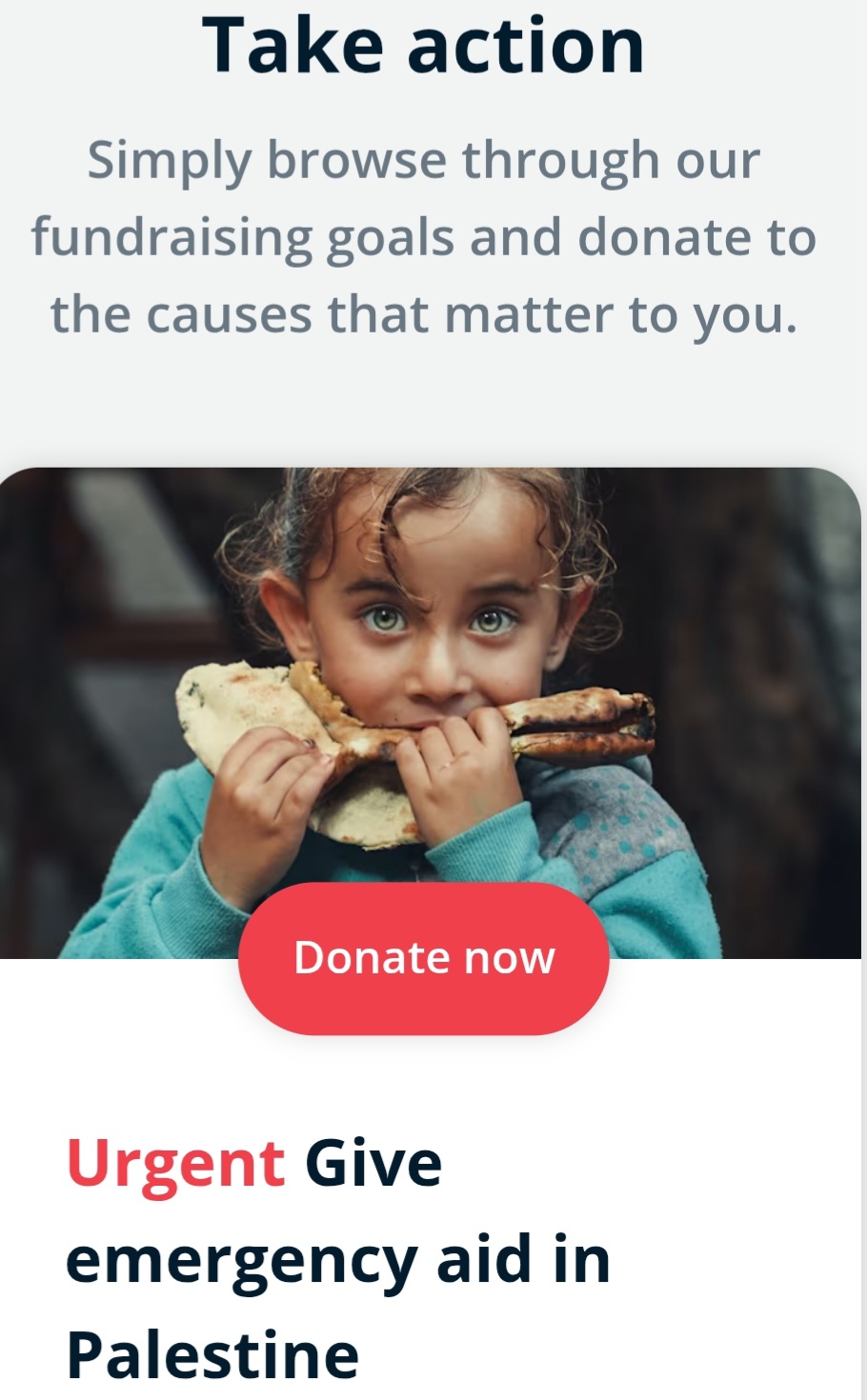‘Come early, stay late’: BZN Int’l Film Festival debuts in early June
The first BZN International Film Festival is fast approaching. The four-day event will welcome scores of filmmakers, special guests, and patrons to celebrate Bozeman with a weekend of films, panels, and special events. From Montana filmmakers to Bozeman businesses and restaurants, BZN is dedicated to making this festival as much a celebration of our home as it is a showcase of superb cinema from around the world.
In anticipation of the community-wide event, The Rolling Zone sat down with Beth Ann Kennedy, Managing Artistic Director of BZN, to talk (only a few) festival offerings and the conversation-starting power of film.
RZ: As part of the Bozeman Film Celebration, the BZN International Film Festival comes to town in early June. How are event preparations going?
BAK: Very, very well. The Bozeman Film Celebration is the umbrella company and BZN is the inaugural event, an international film festival spotlighting women, June 7th – 10th. Underneath the umbrella, the award-winning films will also be taken around the five-state region. For the festival itself, we have over 60 films from around the world, as well as 7 children’s international shorts. We have documentaries, narratives, dramas and comedies, [in both] long and short formats. And, presently, 13 different seminars all led by a film.
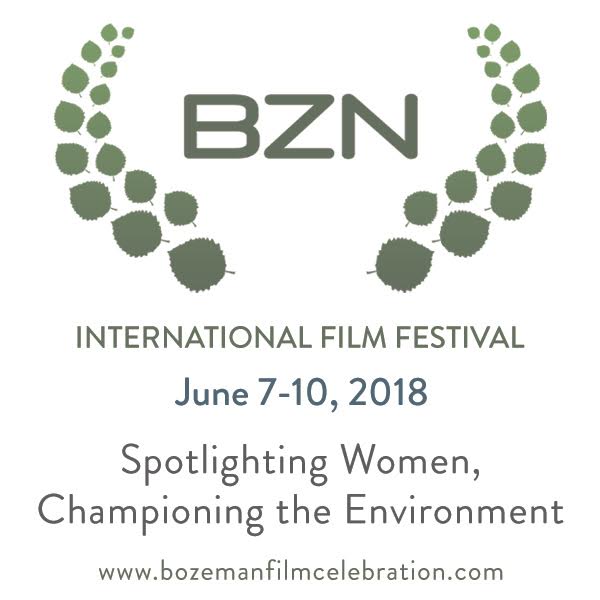
RZ: Give us a peek into the film selection process. How were the BZN titles chosen?
BAK: When I was given the opportunity to produce this, I went to the office of Economic Development and asked Brit Fontenot, ‘What does Bozeman need? What are the issues?’ [He mentioned] domestic violence, the opioid and prescription drug abuse problem, and also housing. I looked for films that will address these issues, and therefore open up conversations to the community of Bozeman, the State of Montana, and whoever comes in from around the country or the world.
RZ: What are a few of the films BZN will showcase in regard to these local issues?
BAK: There’s a film called Catching Sight of Thelma & Louise about how the original with Susan Sarandon and Geena Davis impacted people’s lives – at that time, but also through the decades. After that film is screened, representatives from HAVEN will be speaking about women who have gone through domestic violence and how they’ve worked out solutions and strategies. We also have a beautiful film called A Different Script. It’s about a child with Down syndrome who loves to act. His parents said go for it but were very clear [about] the things he would struggle with given the situation. Now he’s been on stage in New York, he’s in Orange Is the New Black, and he’s done film work. After that piece, we have some people coming in from Eagle Mount and Reach Inc. to speak. We encourage anybody that works through disabilities – that’s great – but this is also for the parents, or the children of parents who have disabilities, or the aunt that wants to have some clearer ideas of how to be supportive. We have a wonderful film called The Hungry Heart that’s done extremely well with communities working with people who have opioid and prescription drug problems. We’ll have several local people speaking on the support systems out there that don’t lock people up, but that help people or help the aunt who has the nephew with this issue.
RZ: You also mentioned housing. That’s a huge issue here.
BAK: We want Bozeman to grow. The worst thing that can happen to a city is that it dies. That it’s growing is wonderful. But how about making it grow sustainably? How about making sure we’re not just looking at the short-term growth, but that we’re looking down the line. So, we have Jamie Redford’s film Happening: A Clean Energy Revolution. He takes this extremely positive approach, showing the different things happening around the country that are helping people go into a more sustainable energy fashion with wind and solar. We also have Jeff Bridges’ film, Living in the Future’s Past, a film about energy and about the energy that each one of us has as human beings.
RZ: It seems as though the films are meant to entertain, but to also educate audiences on a variety of issues.
BAK: This film festival is about opening up conversations. We are not doing anything highly politicized. We’re not going to go there, but we are absolutely offering the opportunity to recognize that films are tools. Sometimes the tool is purely for kicking back and having some popcorn, and that’s great, but we’re really looking at the educational components of films. What I think I’ve noticed so much in Bozeman that I adore, people want to be educated. BZN will give people the opportunity to discuss the films after the screenings.
RZ: There are likely many, but is there a film you’re super anxious for people to see?
BAK: We have this wonderful film called It’s Criminal about a Dartmouth course where [a group of] primarily young women are taken into this local prison facility. These women tend to be privileged and come into the course with all their opinions and attitudes and judgment and everything else. [The students and those incarcerated] talk through each other’s stories and realize, over time, how they’re really the same but have had very different experiences. The film is about how both groups are helped for different reasons. The director, Signe Taylor, is bringing one of the people who was in the prison and is now a student at Dartmouth. That’s the impact it’s had.
RZ: What other stories can attendees expect from the June festival?
BAK: We also have a film coming in from England called Whirlpool about Hellen Keller, one of the people that started the ACLU. We have some people coming from the Helena [branch], speaking about the connection and what the ACLU is doing right now for liberties. And then for our athletes in town, we have one about a biking team that cycled through all seven of the United Arab Emirates in 24 hours. The piece is about this team of basketball players in the mountains of Nepal, which is very similar to the incredible basketball culture in the Native American community. Then we have Kim Swims about this woman who had had some physical problems but started training as a swimmer, [then eventually completed] the Farallon Islands swim off the coast of San Francisco in shark-infested waters. There’s also one about these young girls in Kathmandu who ride bikes – in their culture, they’re not even supposed to be on a bike. The film is about how they found their liberty in riding these bikes, supporting each other, and helping make shifts in what is appropriate and inappropriate for women in their society.
RZ: There really is quite the range.
BAK: We have a film called Cortez about a musician that was involved with this woman – who’s also the writer/director and stars – and their experience. We have Sami Blood, which is a narrative out of Sweden, and it’s fabulous. The main character is a Laplander. The way the Swedes approach the Laplanders is very similar to things that happened here with the Native American culture. We have this wonderful film, Llyana, about these young children in Swaziland. Because of their experience and how they handle what is actually PTSD, they create this incredible narrative all in animation. It’s absolutely gorgeous.
RZ: Are there any special events planned to supplement the many screenings and seminars?
BAK: Starting in May, our hub will be at the ERA Visitors Center building at 8 East Main. People will be able to come in, pick-up their pass and program, and also a scavenger hunt map. A big part of this is that we want to help people see all the wonderful things about Bozeman. During the festival we’re having a free family night at the Willson, starting out with local filmmaker Sierra Fein. She did a movie a couple of years ago called Love-Stuck, which is a silent film involving two people [who] solve all their problems with all different colors of duct tape. It’s very Chaplin or Buster Keaton. It’s adorable. She’s going to be speaking with the children and parents about why seeing a film on a cellphone, or even on an iPad or a computer, is very different than seeing it on the big screen. Then we’ll go into this collection of shorts from the New York International Children’s Film Festival.
RZ: Oh fun!
BAK: The evening will be more for adult family audiences after that. A local woman who graduated from the MSU Film School, Christi Cooper, will have the trailer for a doc she’s working on called Youth v Gov. It’s about a series of young people that are suing the government for their environmental rights. She’s going to talk about the film and the progress being made in the courts around the country.
RZ: Very nice.
BAK: We’re also hosting a free screening of The Long Shadow, which is a film about the abolitionist movement right up to today. It will certainly touch on a huge amount of issues because of what’s going on around the country. I think we have to really pay attention to that. We’re so protected here, but there are so many people that are not. We have to pay attention because if we don’t, history comes back at us. Then we’ll have Ken Burns’ Not for Ourselves Alone: The Story of Elizabeth Cady Stanton & Susan B. Anthony. Stanton is the woman, back in the mid-1800s, that spoke at Seneca Falls – out of her mouth came ‘and women should have the vote!’ It’s so full of great information. With the family night and [these screenings], we’re offering ways for the community to take part even if they don’t buy passes. Also, BZN will actually close with a big event where awards are given for the films, which are all being voted on by the audiences as they see them. We’ll keep tally as we go.
RZ: BZN will host events at the Emerson, The Ellen, Rialto, and Willson Auditorium with additional gatherings at Old Main Gallery and on the Montana State University campus. Why spread things out as opposed to hosting the festival at a single venue?
BAK: During the day, we can throw some cool, avant-garde films in smaller spaces knowing that they’ll be a good house for those screenings. Maybe not everyone wants to see something on domestic violence, but they can come over here and see Jacqueline Rieder Hud’s piece on how a California producer is turning her book, Laundry for Strangers, into a film. Spreading it out has more to do with having that advantage.
RZ: In the past, the availability of independent film in Bozeman has been pretty limited. That appears to be changing with local film clubs and societies, the opening of new venues, and events like BZN.
BAK: There have always been a group of people that love film and that love independent film. That’s growing because, unfortunately, we’re not reading enough. We all know how long it takes to read a decent book. Any great book reader will say, ‘It was a better book.’ But, if the film is done well, a person is able to come in and be delivered a full story in a short period of time. We’ll show a film called Mankiller about the first female chief. She lived a long and extremely full life, very active right down to getting the Medal of Freedom from President Clinton. That book takes a long time to read, but to be able to come in for less than two hours and learn that story, get that knowledge, is huge. Studio films are wonderful, but they are absolutely trying to deliver certain messages. Independent film comes in and hits the independent thought. I think, in some ways, through technology, we are developing many more independent thinkers. And because of that, we have more people that want independent film.
RZ: The BZN International Film Festival will spotlight women from all corners of the film industry. How did this theme come to fruition?
BAK: George Dorsey, BZN’s founder and executive producer, loves Bozeman and MSU. He has a home in Middlebury, Vermont [where] there’s a wonderful college. They started a film festival almost four years ago, and he watched how valuable it was. It was great for the community, great for the school, great all around. So, he looked at the situation in Bozeman. ‘Here’s this incredible film school, I love art [Dorsey also owns Old Main Gallery], what is something that I can offer?’ He had the thought to spotlight women. Then, as we know at the end of the summer, things started getting pretty intense. With this shift that we need to have happen in the collective consciousness and conversation, we want to make sure we have as many men in the seats as we have women. How do we go forward? What is the correct behavior? What is the right way to treat my mother, my sister, my girlfriend, my daughter? What is the right thing, as a mother, to tell my son, to talk to my husband about, to tell my boss? As we looked at that, it definitely influenced which films we were going to take on. Our lead film, Happening: A Clean Energy Revolution, is about the woman in all of our lives that if we don’t pay attention to, none of it makes any difference. It’s about Mother Earth. So, we’ve got some films that have been done by men, but they’re centered on women. Mark Gordon is the producer/writer/director of a film called Awakening in Taos about Mabel Dodge Luhan, the women who brought Georgia O’Keeffe and several other artists to the Southwest. She also was instrumental in saving the lands in that area for the Native Americans. Yes, it’s a guy doing it, but he’s sharing this wonderful female experience.
RZ: We’ve covered a lot, but is there a closing message you’d like to share?
BAK: Get your passes! It’s so important for people to come out and really get into the experience. This is a regional film festival that encourages [attendees] to take this on and get invested in the information so the community, as a whole, can go forward. It’s going to be Bozeman – the glitterati is the mountains. We want to recognize the beauty of what we have here, in the Bozeman area, Montana, and the Northwest. BZN is going to be its own thing. As we grow, it’ll be remembered as being Bozeman. So, buy a pass for yourself or give one to somebody else. Mother’s Day is coming up – what a great gift for the mother, grandmother, daughter, wife, sister, or aunt in your life!
RZ: And buying a pass is an investment in entertainment, education and the community.
BAK: We’d be a lot better off if our entertainment also helped us go into tomorrow with a greater understanding. I can’t imagine anybody that doesn’t go, ‘Today was a great day – I wonder how I can make tomorrow better? I wonder how I can help better my community? I wonder how I can be better to the planet?’ That to me is extremely entertaining.
Visit www.bozemanfilmcelebration.com for pass information, a complete lineup of films and special events, and further details about everything BZN.
Follow BZN on Facebook, Instagram and Twitter for the most up to date announcements.
Prepare to be inspired. The BZN International Film Festival is June 7th – 10th. •

